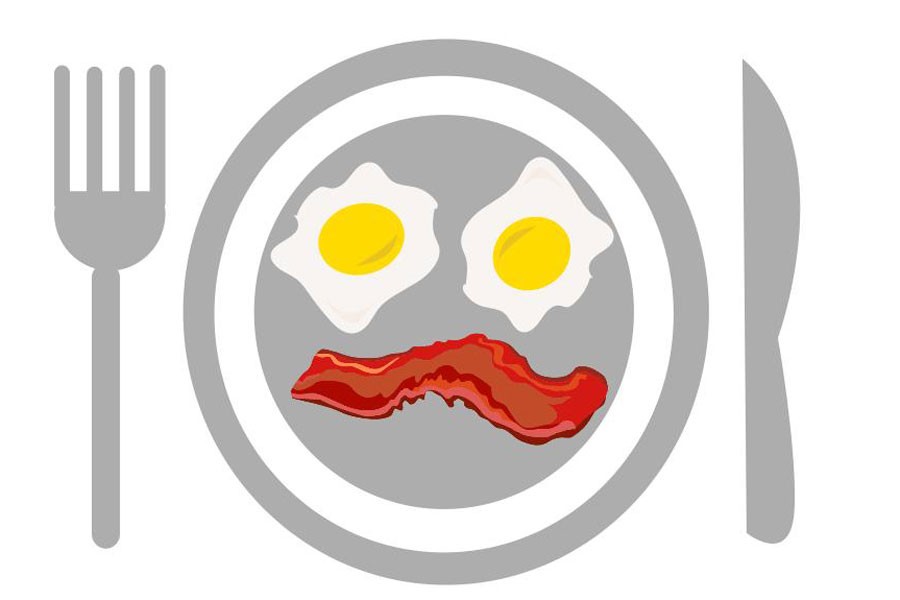Bacon increases risk of cancer
Do you like bacon? Well, your body doesn’t. The World Health Organization announced that processed meats, including bacon and hot dogs, are carcinogenic to humans.
While different types of dietary factors account for around 30 percent of all cancers, consuming processed meat leads to a direct risk of developing colon cancer, according to the World Health Organization. Eating about 50 grams of processed meat a day can increase the risk of colon cancer by almost 18 percent. 50 grams is about two slices of bacon, or one small hot dog.
Extreme temperatures and chemicals such as nitrates and nitrites, which the body turns into cancer-causing compounds, are used to extend the shelf-life of these meats. As a result, processed meats increase risks of developing cancer.
There are almost 34,000 cancer deaths per year connected to diets heavy with processed meats. The International Agency for Research on Cancer suggests eliminating all forms of processed meats from your regular diet.
For a majority of consumers and JC students, eliminating all processed meat may pose a problem. Some students say that processed meats, like bacon or lunchmeat, are big parts of their diets. “Bacon is love, bacon is life,” junior Mattson Gutierrez said.
Processed meats are made to last longer without going bad, and to need less refrigeration to stay edible. This characteristic of processed meats enables these products to be used in bagged lunches, and for some, processed meats are an everyday staple. “I eat lunch meat everyday on sandwiches,” freshman Jake Szech said.
However, a handful of students have already eliminated processed meats from their diets. “Yes, [I already knew that processed meats cause cancer] because I live in a health-conscious household […] I’ve never really had meat in my house,” sophomore Grace Hollin said.
Other students say that processed meat will remain a part of their diet. “It won’t affect [what I eat]. I’ll still be eating [processed meat] because it’s very delicious, and it would be hard to not eat it,” Szech said.
While students continue to eat processed meats regularly, some will attempt to cut it out of their diets. “I’ll probably eat [bacon and other processed meats], but not as much as before. I don’t completely brush [information about how to stay healthy] off,” senior Abby Barnd said.
While the International Agency for Cancer Research suggests excluding processed meats from your diet, eating these meats on special occasions won’t drastically increase your risk of developing cancer. The IARC also says that you can still eat meat, such as unprocessed white meat, and stay healthy.
The IARC also suggests staying active and eating a healthy and balanced diet to prevent cancer. They suggest eating fish or poultry instead of processed meats, and including more dietary variety.
“Vegetables are a great option,” Hollin said.
Grace Mottley is a News Editor for the Patriot and jcpatriot.com.



